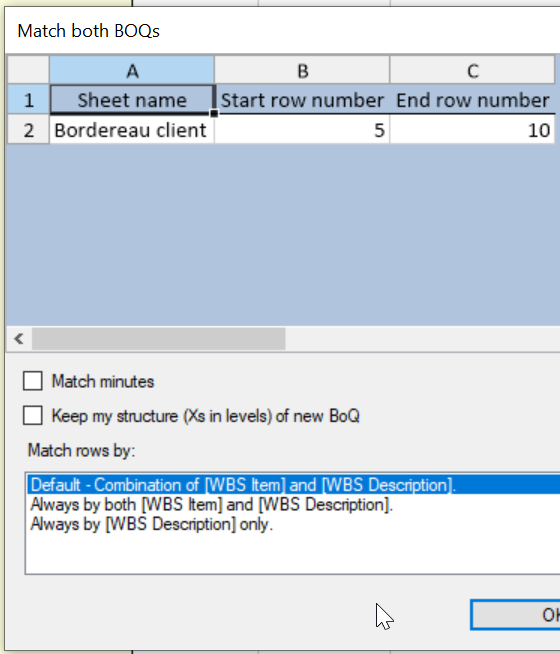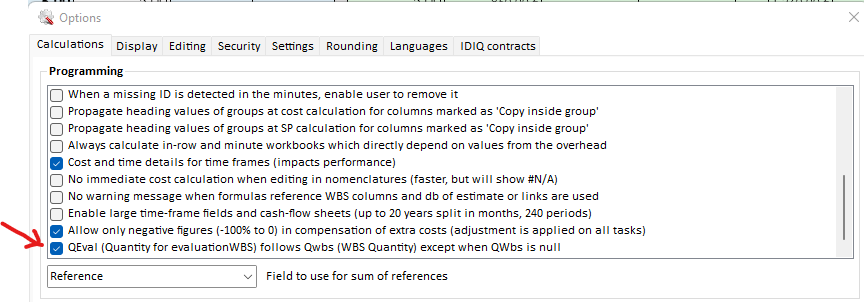Released on January 11, 2022
The statement MergeColumns=X-Y in the heading tables of a WBS template in a word document was not always taken into account properly. If you had a Minute template with such a merge statement the latter was taken into account in place of the one of the WBS template.
When you save an estimate and the archive (the qdv file) gets corrupted for any reason (failure on the network, corrupted cluster, etc...), QDV delivered a clear red warning message asking to save the file to another location but this message was only in English.
Having received recently a corrupted file at the help desk, we suspect that this message was ignored. Now it is translated and if one decides to ignore it, he is warned again by another message.
This message is delivered when QDV checks the integrity of the saved file (it tries of re-open it right after the "save" operation). When the integrity test fails, this means that the saved file is corrupted and you MUST save it to another location to prevent loss of data.
This problem occurred only in a specific rare case. It only applied to free WBS fields that had no formula and the WBS columns contained some manually entered values. Then if such field was changed to “Has formula”, the new formula was correctly applied. But after Check and repaint, the old manual values were displayed instead of the result of the formula.
The used BOQDescription in left panel of ‘Match both BOQs’ workbooks was limited to 100 length so longer descriptions were truncated. Now the first complete row is retrieved from BOQDataMemo field.
New: Estimate Converter – Match both BOQs (Estimate: Data-Excel-Update with new BoQ) – new option ‘Match rows by’

The first ‘Default’ option keeps current combination of WBS Item and WBS Description. The 2nd one uses always both [WBS Item] and [WBS Description] fields, while the 3rd one uses for mapping rows only [WBS Description] column.
For each Gantt sheet, user can chose which column will be used to get the unitary cost and the unitary selling price. By default, the standard column are used (CostPerUnit and CalculatedSellingPricePerUnit) but it can be changed, under the control of the user.
Some customers do not want to deal with the Quantity_for_Evaluation_WBS column but it is convenient to have this column so they can avoid the By Total mode which is quite constraining.
Now, you can keep the Quantity_for_Evaluation_WBS in your layout and write to it each time you change a quantity, whatever the mean. To do this, just check new box in the calculation flags.

With this flag set, the Quantity_For_Evaluation_WBS is adapted each time the WBS Quantity is changed EXCEPT WHEN THE LATTER IS NULL!
So, when the quantity is null, you keep the quantity for evaluation and you can still evaluate your task. Using the By Total mode, you wouldn’t be able to get a cost per unit because when the quantity is null, you get a #DIV/0.